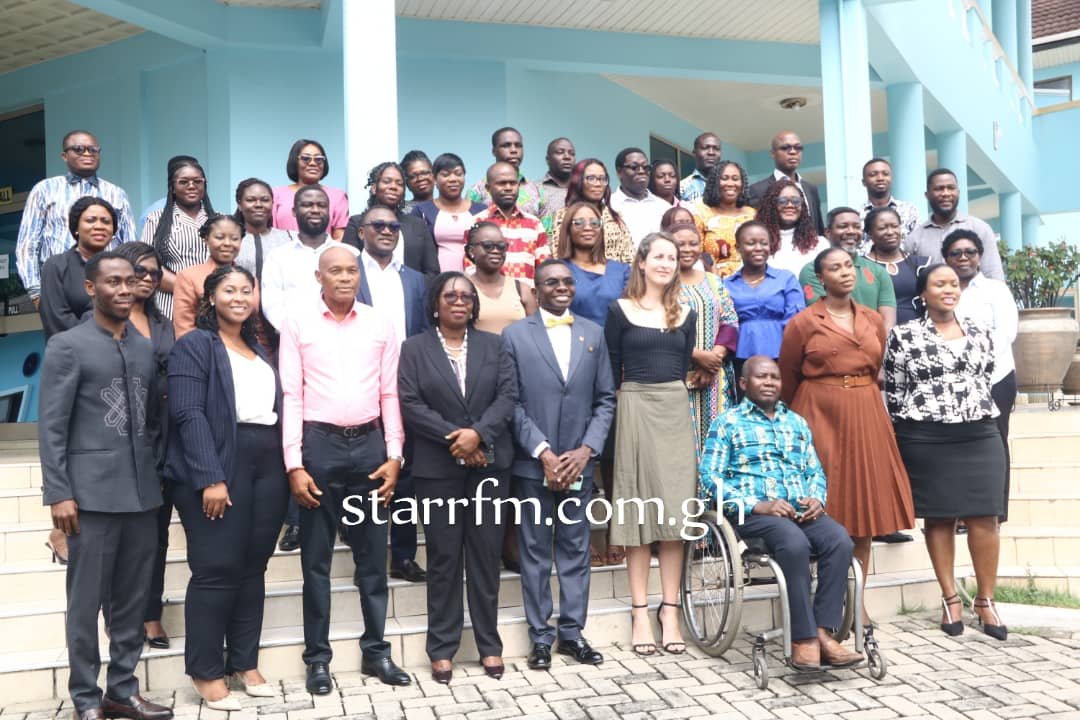A two-day national multi-stakeholder workshop is currently underway in Koforidua to address the implementation of 268 recommendations accepted during Ghana’s 4th cycle United Nations Universal Periodic Review (UPR).
This workshop is a collaborative effort between the Office of the Attorney-General and Ministry of Justice and the POS Foundation, which serves as the conveners of the Ghana UN Universal Periodic Review (UPR) Civil Society Platform.
The UPR is a crucial process that allows United Nations Member States to undergo reviews of their human rights records every five years.
It provides these states with a vital platform to showcase the actions they have taken to enhance the human rights situation within their respective countries.
Ghana has been actively participating in the UN Universal Periodic Review process for the past decades.
Ghana’s first, second and third UPR reviews took place in May 2008, October 2012 and November 2017, respectively.

Ghana is one of the States whose human rights records were reviewed by the UPR Working Group during the 4th cycle review in January 2023 in Geneva, Switzerland.
The 4th cycle review involved the Minister for Justice and Attorney-General of Ghana, Godfred Yeboah Dame, who led the Ghanaian delegation.
Out of the 298 recommendations received during the review, 268 were accepted by Ghana, while 30 were deferred.
These recommendations touched on various aspects of human rights, including issues related to child labor, child marriage, women’s participation in governance, the rights of persons living with disabilities, access to justice, and protection for minority groups, including LGBTQ+ rights, and the freedom of the media and freedom of expression.
The two-day multi-stakeholder workshop convened by the POS Foundation and funded by UNFPA in Koforidua brings together various stakeholders, including government representatives and Civil Society Organizations (CSOs).
The workshop is designed to facilitate dialogue and collaboration in the development of an implementation plan to enhance Ghana’s human rights performance.
This implementation plan is intended to ensure the effective execution of the recommendations accepted during the current UPR cycle.
It aligns with Ghana’s commitment to safeguard and promote the rights of its citizens and to further enhance human rights within the country.
Jonathan Osei Owusu, Founder and Executive Director of POS Foundation told the media that the workshop will increase awareness of the UPR among all stakeholders, including the public, at national level.
Also create a National Implementation Plan by the relevant State Bodies, position CSOs as key stakeholders in the implementation process, Strengthen and harmonized collaboration between the State and CSOs.
“We are here as civil society drawn from all over the country and office of Attorney General and Minister of Justice partnering with us, we are developing implementation plan to all the recommendations received so if they say government of Ghana should take action to promote media freedom and freedom of expression what are the steps government of Ghana is supposed to out in place, what is the deadline, what are we supposed to do. Which department, agency is supposed to foster these .So these are the things we are looking at this moment so that we develop implementation plan for the UPR recommendations to be able to push Ghana’s human rights agenda, promote the respect for human right in our country so that we all have peaceful and safe country” Jonathan Osei Owusu explained.
Dr. Sylvia Ama Adusu, Chief State Attorney (Civil Division) at the Office of the Attorney-General and Ministry of Justice, shared her insights and also acknowledged that funding remains a key limitation that may affect the implementation of the recommendations.
“What we are here to do is to draw up a plan that tells us how we are going to implement all the recommendations that we have accepted. Every ministry that is responsible for a certain recommendation will tell us how far it has gone what is left to be done and if there is any help that we can give them, we give them but generally the three arms of government are all reflected in the group that we have in the national mechanism,” the Chief State Attorney said.
She added “most of what you call the bottlenecks will be financial because some of the recommendations need money to implement for instance if government has said they are going to build CHP compound everywhere, I think money is important so it is something as a nation we have to think about where we are putting our priorities. Health is obviously a priority. Mental health from our report we find out it is a priority so government has to put its money in such things.”
UN Resident Coordinator’s Office representative, Olwen Byrne, said the workshop is not only a critical step toward enhancing human rights in Ghana, but also a testament to the nation’s commitment to upholding these fundamental rights for its citizens.
She emphasized that Ghana’s commitment to upholding these rights is commendable and that achieving fundamental human rights is a journey, which requires ongoing dedication and effort.
The workshop is a pivotal initiative in Ghana’s quest to continually improve and protect the human rights of its citizens.
Source: Ghana/Starrfm.com.gh/103.5FM/Kojo Ansah




